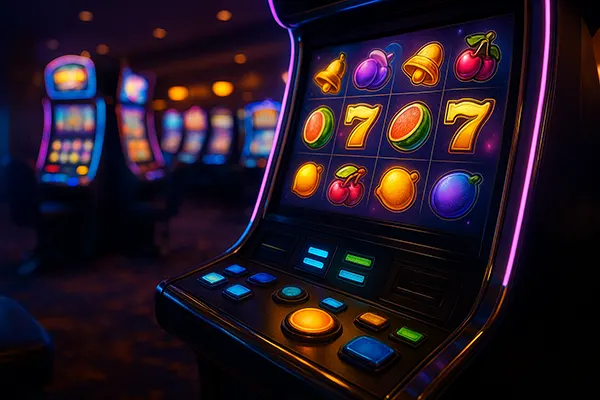
The Mathematics of Casinos: How Odds Are Formed in Roulette, Slots, and Blackjack
Behind every casino game lies a carefully structured system of mathematics that determines the likelihood of winning and the house’s advantage. In 2025, understanding these principles has become essential for players who want to make informed decisions rather than rely on luck alone. From probability theory to payout ratios, casino mathematics defines the long-term results of every spin, card, and bet.
Roulette: Probability and House Advantage
Roulette remains one of the most iconic games in gambling history. Its odds are shaped by the number of pockets on the wheel and the payout ratios offered for each bet. In European roulette, there are 37 pockets, while American roulette includes an additional double zero, making 38. This slight difference raises the house edge from 2.7% in the European version to 5.26% in the American one, altering the expected return for every player.
Each bet type in roulette carries its own probability and payout relationship. For example, a straight bet on a single number has a 1 in 37 chance of winning on a European wheel but offers a payout of 35 to 1. This difference between true odds (36 to 1) and the actual payout ensures the casino’s long-term profit. The balance between risk and reward is maintained through this subtle mathematical gap.
Modern online roulette systems, regulated under the UK Gambling Commission and Malta Gaming Authority in 2025, employ random number generators (RNGs) to replicate the unpredictability of physical wheels. These RNGs are independently tested to ensure fair probability distribution, meaning that mathematical fairness, not manipulation, governs every spin.
The Role of Statistics in Predicting Outcomes
While roulette is a game of chance, probability analysis allows players to understand the distribution of outcomes over time. No betting system can overcome the built-in mathematical advantage, yet data tracking can reveal long-term trends. For instance, after thousands of spins, each number should appear roughly the same number of times, with only minor statistical deviations.
In 2025, advanced statistical tools help regulatory bodies verify the fairness of RNG-based games. Laboratories such as eCOGRA and iTech Labs use Monte Carlo simulations and chi-square testing to confirm that results conform to expected probability curves. This ensures that roulette remains transparent and compliant with international gambling standards.
Mathematical consistency protects players and maintains integrity within the gaming industry. Understanding statistical probabilities empowers users to differentiate between fair randomness and biased outcomes, reinforcing trust in certified casinos.
Slot Machines: RTP, Variance, and Algorithms
Slot games represent the most mathematically complex area of casino entertainment. Their outcomes are based on advanced algorithms that define the Return to Player (RTP), volatility, and symbol distribution. RTP refers to the percentage of all wagered money that a slot will pay back to players over time. In 2025, regulated markets such as the UK require slots to maintain an RTP between 92% and 98%, depending on the game design.
Variance, or volatility, measures how frequently and how much a slot pays out. Low-volatility games produce small but frequent wins, while high-volatility slots may hold back payouts for extended periods before releasing large sums. Both settings are determined through extensive mathematical modelling that balances entertainment with statistical fairness.
Every modern slot relies on an RNG to generate random outcomes. This algorithm ensures that each spin is independent, unaffected by previous results. Developers like Microgaming, NetEnt, and Pragmatic Play constantly update their mathematical frameworks to comply with new standards introduced by European regulators in 2025, guaranteeing transparency and auditability.
Mathematical Regulation of Online Slots
The UK Gambling Commission and other European authorities have intensified oversight in 2025, demanding more detailed RTP disclosure and algorithmic transparency from slot developers. This ensures that players know the exact probability ranges before wagering. Publicly available audit reports confirm that outcomes follow certified mathematical models rather than patterns designed to deceive users.
Slots are now tested under ISO/IEC 17025 standards for statistical accuracy. These evaluations check the consistency of payout tables, RNG behaviour, and symbol frequency across millions of simulated spins. As a result, the modern online slot industry functions within an entirely mathematical and regulatory framework rather than guesswork or belief.
Such transparency benefits not only regulators but also players seeking responsible entertainment. By knowing how RTP and variance work, gamblers can choose games aligned with their preferences and budgets, reducing risk and enhancing informed decision-making.

Blackjack: Skill, Probability, and House Edge
Unlike purely random games, blackjack incorporates both chance and strategy. The mathematics of blackjack centres on card probabilities, expected value, and decision optimisation. In a standard six-deck game, the house edge typically stands at around 0.5% when players apply basic strategy — a remarkably low margin compared with other games of chance.
Basic strategy charts are based on statistical simulations analysing millions of hands. These models determine the optimal move — whether to hit, stand, double, or split — for every possible combination of player and dealer cards. Following this mathematically proven approach minimises losses and keeps outcomes close to statistical equilibrium.
In 2025, online blackjack variants often include side bets such as “Perfect Pairs” or “21+3.” These features add excitement but also increase the house edge to between 2% and 7%, depending on the rule set. Players aware of mathematical probabilities can evaluate these side bets rationally, distinguishing entertainment value from statistical disadvantage.
Card Counting and Modern Casino Countermeasures
Card counting remains a mathematically valid technique that slightly improves a player’s odds by tracking the ratio of high to low cards remaining in the shoe. However, in 2025, digital shuffling machines and real-time deck randomisation have made traditional counting nearly impossible in regulated casinos. Mathematical unpredictability is now enforced by technology itself.
Online live blackjack uses certified RNGs and multi-deck systems to replicate authentic gameplay while maintaining fairness. Regulatory authorities require that these systems undergo continuous statistical analysis to confirm random distribution of outcomes. Any deviation beyond acceptable limits leads to immediate suspension of certification.
Thus, while mathematics once offered a practical advantage to skilled players, the modern industry has balanced the equation through digital oversight. The game’s integrity now relies on transparent algorithms, strict audits, and the same mathematical principles that define every other casino product.




